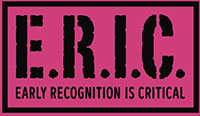Breast cancer is one of the most common forms of cancer in women. While genetics and environmental factors play a role, research has also shown that a healthy diet and lifestyle may help reduce the risk of developing breast cancer. Here are some important nutrition facts to consider:
- Eat a Balanced Diet: Eating a balanced diet that includes a variety of fruits, vegetables, whole grains, lean proteins, and healthy fats is essential for overall health and can help reduce the risk of breast cancer.
- Limit Alcohol Consumption: Drinking alcohol has been linked to an increased risk of breast cancer, so it’s important to limit your intake. The American Cancer Society recommends that women limit their alcohol intake to no more than one drink per day.
- Reduce Intake of Red Meat and Processed Meats: Some studies have found a link between eating red meat and processed meats, such as bacon and hot dogs, and an increased risk of breast cancer. It’s important to limit your intake of these types of foods and choose lean proteins, such as fish, chicken, and plant-based options, instead.
- Increase Intake of Plant-Based Foods: Eating a plant-based diet that includes plenty of fruits, vegetables, whole grains, nuts, and seeds can provide many nutrients and antioxidants that may help reduce the risk of breast cancer.
- Get Enough Vitamin D: Vitamin D plays an important role in bone health and immune function, and some studies have suggested that it may also help reduce the risk of breast cancer. Talk to your healthcare provider about whether you need to take a vitamin D supplement.
- Maintain a Healthy Weight: Being overweight or obese has been linked to an increased risk of breast cancer, so it’s important to maintain a healthy weight through a combination of a healthy diet and regular physical activity.
- Consider Phytoestrogens: Phytoestrogens are naturally occurring compounds found in some plant-based foods, such as soybeans and flaxseeds, that may help reduce the risk of breast cancer. Talk to your healthcare provider about whether adding these foods to your diet is appropriate for you.
- Avoid or Limit Processed Foods: Processed foods that are high in sugar, salt, and unhealthy fats have been linked to an increased risk of cancer and other chronic diseases. It’s best to avoid or limit these foods and choose whole, unprocessed foods instead.
- Consult a Registered Dietitian: If you have breast cancer or are at risk of developing breast cancer, consulting with a registered dietitian can help you develop a personalized nutrition plan that meets your individual needs and goals.

